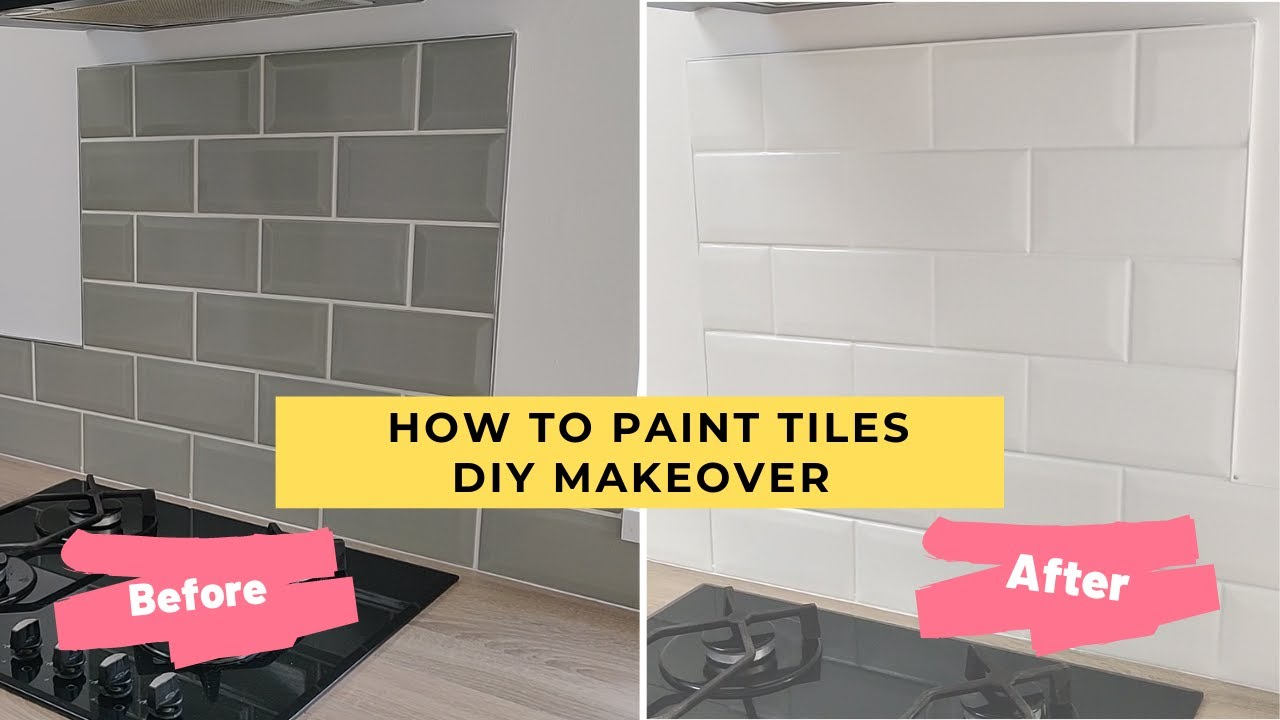
How to Paint Tile
Tiles made of ceramic or porcelain add value to a home. However, installing new tiles can be expensive. This difficulty is also related to tile-setting-many DIYers prefer professional tile-setting. As if that weren't enough, demolition and disposal of old tiles are challenging, messy, and not environmentally friendly.
Tile replacements are faster, less expensive, and significantly cleaner than complete replacements. In this project, the tile will last longer and be repainted to an almost-new appearance.
Basics of Painting Tile
Tile surfaces are not designed to be painted, which makes painting tile different from many other painting projects. The tile's character is often glazed to a high sheen, protecting it from dirt, smudges, dust, oil, and paint. However, with these tips, you can paint your tile successfully and enjoy a longer lifespan.
Choose the best surface:
Tile is best applied to vertical surfaces like dry walls or low-moisture backsplashes. Additionally, it is suitable for low-impact horizontal surfaces such as tile countertops.
Clean the tile:
A protective cover, tile can be hard to eliminate years of dirt and grime. Clean all of the tile, especially the grout seams, thoroughly.
Scuff the tile:
Surfaces with gloss can shed paint easier. Sanding the tile surface creates a matte finish that lets the paint stick better and longer.
Use tile paint only:
Painting tile should not be treated with acrylic-latex interior or exterior house paints. Use epoxy paint or paint designated as the tile paint for better results and maximum durability.
Tile Paint Types
You can choose the tile paint most suitable for your project if you understand the main types of paint.
One-Part Epoxy Paint:
Using multiple coats of one-part epoxies is unnecessary to work with them. There are air-cured epoxies called one-paint ponies. Chemical processes cure multi-stage epoxies, on the other hand. The spray can contain some one-part epoxies.
Two-Part Epoxy Paint:
The substance is brushed or rolled onto the tile after mixing the first and second components. It's usually easier to find two-part epoxy, so more options are available.
Two-Process Paint:
Completing this type of tile paint is two separate steps. A bonding agent is needed first. You can use the top finish coat as well. Two-process tile paint is durable and rugged.
What You'll Need:
Equipment:
Tack cloth
Orbital sander
Sandpaper
Putty knife
Clean bucket
Paint roller and cover
Paint tray and liner
Paintbrushes
Scouring pad sponge
Latex or latex-substitute gloves
Eye, hearing, and breathing protection
Materials:
Tile paint
Polyurethane clear coat
Painter's tape
Sheet plastic
Epoxy bonding primer
TSP or TSP-substitute cleaner
Paintable caulk
Exterior-grade waterproof spackling paste
Tile grout
Clean the Tile
Add the TSP to the bucket and fill it with warm water. The tile should be wiped down with gloves to remove all dirt. Start at the top and work downward, frequently changing the bucket with warm water and TSP. Do not rinse the tile with clean water, and let it dry.
Do you know about TSPs?
Trisodium phosphate, or TSP, is an odourless dry powder. Combined with water, it is a high-performance cleaner for cutting through grease and grime. TSP is sometimes banned in some places. If this is the case with your room, look for phosphate-free substitutes.
Repair the Tile
Cracks and small chips on the tile surface can be repaired with caulk. Apply a small amount of caulk to the crack or chip while wearing gloves and wipe it level with your finger.
A waterproof spackle can be used to cover more significant defects. Apply a small amount of caulk to the crack or chip. Take the excess off with a putty knife and bring the filler to the tile surface.
Repair the Grout
To paint tile, grout must be in good condition. You can use tile grout sold in tubes for minor spot repairs. With a gloved finger, apply the grout and wipe it away. If the grout is damaged more than some layers, replace it with new grout.
Sand the Tile
With an orbital sander equipped with sandpaper, you can protect your eyes, ears, and breathing. Do not sand down to the tile. Make sure you scuff up the glaze. Get rid of the tile with water. Once the tile is dry, clean it with a tack cloth once again.
Protect Non-Paintable Areas
You can protect areas that cannot be painted with painter's tape and sheet plastic.
Prime the Tile
A small amount of primer can be poured over a lined paint tray. Paint the tray with the primer, then roll out the excess until it is almost dried. Apply primer onto the tile, not letting it press too hard. Apply only a thin coat so as not to droop.
Apply a second thin coat of primer after it has dried.
Paint the Tile
Line it with paint. After putting a small amount of paint on the tray reservoir, roll out the roller until it is almost dry. Apply one coat of paint to the tile surface. Brushing your edges with paint is necessary.
Apply a Sealer
Application of two coats of polyurethane sealer once the paint has completely cured is necessary for protecting the colour coats.
Tips
You might want to fix any cracks in your tile before painting by adding caulking and smoothing them out.
Make sure that you have filled in or replaced any damaged grouting, as tile paint will not cover damaged areas.
I would encourage you to skip this step.
Use only the tile paint intended for this project! Latex paint will not hold up over time.